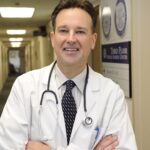UBCNM Program Closure: A Canary in a Coal Mine?
Open Letter to the Profession
David M. Brady, ND, DC, CCN, DACBN, IFMCP, FACN
By now many of you are undoubtedly aware of the decision by the University of Bridgeport (UB) to cease further enrollment and complete a “teach-out” in its 20-year old naturopathic medical program. Given my 23-year association with the institution, including 12 years as Vice Provost and then Vice President of Health Sciences, many in the profession have reached out to me for some reasoning or rationale for this decision. Firstly, let me say that I do NOT speak for UB on this matter. When the new UB president and leadership came to the institution in July of 2018, I found that to be a perfect time for me to start transitioning down from my VP role as the leader of health sciences at UB and to return back to my home academic program as Director of the Nutrition Institute at UB. There I have the privilege to lead the oldest and most acclaimed Master’s program in Integrative & Functional Human Nutrition in the United States, and likely the world, both online and on-campus. This is an extremely successful and innovative academic program by all measures, and very well-enrolled.
That being said, there are issues in play more generally in higher education, and more specifically in naturopathic medical education, that have contributed to the closure of the UB College of Naturopathic Medicine (UBCNM). The unfortunate reality is that these issues are not unique to UB and the same outcome is likely to happen elsewhere. The undeniable facts are that there has been a multi-year downward trend in naturopathic medical program enrollment, with some exceptions, which has stressed most of the programs throughout North America. I will get into some of my opinions on the reasons for this a bit later in the article. However, this downward trend in enrollment coincides with extreme pressure on all academic institutions, particularly comprehensive universities like UB. These pressures include the vilification of higher education in the media and by politicians in general in the United States, increased difficulty in facilitating US entry by international students to study (a major revenue generator for US universities), ever-increasing un-funded regulatory and legal mandates and accreditation requirements/demands placed upon institutions and programs, and the shrinking populations of properly prepared college-aged domestic applicants. I believe this has also coincided with deeper problems facing the naturopathic profession at large.
Deeper Problems Facing the Profession
What are these deeper problems? Well, on one side you have hordes of medical doctors (MDs) who are understandably disenchanted with the conventional medical model and their day-to-day practice realities. This is driving many of them to take a seminar or two, or perhaps a certification course of some sort, in “integrative” or “functional” medicine, then often proclaiming themselves as the “integrative, natural and lifestyle medicine” expert. While many of these physicians are extremely skilled, knowledgeable, and committed to this type of medicine, I have also encountered many who have treated this as nothing more than a new practice “niche” and revenue-development strategy rather than a sincere new approach to health care. The inherent cultural authority in our society that the MD enjoys makes it hard for the naturopathic doctor to compete, despite their much more comprehensive and deeper level of training in “natural” medicine.
On the other side you have an ever-increasing plethora of various iterations of “nutritionists,” “health coaches,” and “wellness gurus” who attend very inexpensive, brief, and cursory online or vocational certificate courses and programs. These courses are offered by a never-ending cadre of “pop-up” online certificate mills, often with “University” in their names to sound more legitimate, but which in reality are not academic institutions with regional and programmatic accreditation standards to meet. Graduates of these kinds of programs often then utilize questionable commercial entities that facilitate the ordering of all kinds of laboratory and diagnostic testing on their “clients” that allows them to essentially play doctor, offering diagnostic opinions and treatment plans that greatly exceed anything that they should be doing based on their level of training and competency, while concomitantly putting them outside any legal and regulatory authorization.
In the above statement, I am not referencing those who complete graduate nutrition programs at regional and programmatically accredited institutions who respect the practice boundaries they are trained to abide by during their training. And for those readers among you who may have attained certificate-level nutrition or health coaching training, and are not exceeding the intended scope of practice for your provider type, I stress that I have no problem with you, and value you greatly in the greater wellness community. However, I have seen some scary stuff out there, and I am sure most of you have as well. Unfortunately, as licensed NDs, we are all too well aware that this category also includes online diploma-mill programs that still exist in “naturopathic medicine,” “naturopathy,” or “traditional naturopathy,” which are not CNME-accredited and do not prepare or qualify those who have completed these programs for licensure as an ND in states that have an actual formal naturopathic licensing act and regulated scope of practice. In such unlicensed states, however, these provider types can essentially get away with calling themselves an ND, naturopath, or naturopathic doctor, and see patients/clients and act as a doctor, usually with impunity.
Where Does This Leave Us?
Where does this leave the modern, legitimate naturopathic medical profession built around the comprehensive training of students through a full 4-year medical program with required clinical internship, and rigorous national board and licensing examinations? The answer is in a very unfortunate and difficult position. The ND is professionally facing many challenges, as are our academic programs by extension. Modern young adults considering academic programs and career possibilities in health care are too often the product of a culture that has featured helicopter parents that have essentially facilitated and planned everything for them. They have essentially been “directed” and “told what to do,” from their organized sports and other activities, to the home. They are less likely to pick a path where they have to work very hard during many years of training, only to enter a profession where, by and large, they have to build a practice, run a small business, and effectively market and promote themselves as a professional in order to be successful. They, and their parents, are much more attracted to careers that virtually guarantee a more traditional institutional “employment,” such as working as a nurse or physician assistant, where they often punch a clock, have a supervisor mapping everything out for them, and they make a very attractive and competitive initial salary. The academic institutions also now gravitate towards such programs, as it is much easier for them to recruit students and they turn away many more qualified applicants than they can admit. The institutions are also now mandated to report – and are judged/ranked on – statistics such as “employment rate” for their programs by media outlets, government entities, and accreditors. It is much easier to collect clean statistics and have good-looking metrics when the program leads to a more traditional “employee” placement.
You also have many older, career-changing individuals who opt for a “short-cut,” completing a program where they can essentially print out their diploma on their home printer after a few months. They may take webinars or “health guru” programs where they are taught how to set up an e-commerce health-expert website, concoct topical online health “summits,” and sometimes even appear in the media as an “ND” or “natural health expert” in some disease or disorder. They often perform nationwide tele-consultations without ever physically seeing patients, and generally act in ways that a true licensed ND never could if they expect to keep their license. In the end, the public doesn’t usually know enough to understand the difference.
Additionally, the decision of many potential naturopathic students to attend and invest a significant amount of time and money in a 4-year ND program has likely been negatively influenced by the criticism and vitriol expressed about the profession by one of our own – the former ND (Bastyr 2011) and self-proclaimed naturopathic apostate, Britt Hermes. According to my conversations with various admissions professionals in naturopathic academia, her blog, as well as articles about her in the media, have had an impact in scaring away potential applicants and influencing them to choose other paths. Her anti-naturopathic medicine propaganda has been entered into the debate by opponents in states where either new or expanded naturopathic laws have been proposed. It has been widely speculated that larger organized opponents of naturopathic medicine have been directly supportive of her effort, and at a minimum have assisted in amplifying her messaging.
In an environment where this is all happening, how can we really expect the CNME-accredited, legitimate ND programs to consistently recruit enough highly intelligent and qualified students willing to spend 4 years in training, plus often another 1-2 years in a specialty residency, all while taking on a substantial student debt load, when they can opt instead to just do it the “easy way”? Alternatively, for the person not wanting to take the easy route and who wants to commit that much time and to work that hard in training, assuming they are qualified, they often opt to go to allopathic or osteopathic medical school and then do a quick “integrative” medicine program and enjoy the easy success that the enhanced cultural authority and opportunities for institutional-affiliated employment afforded them by virtue of those degrees.
Hard to Build Clout in Isolation
Finally, I would be remiss if I did not honestly address the role that I believe the profession and individual NDs have played in this situation. I can say from my personal observations over many years that the naturopathic community has, in my estimation, been somewhat insular and isolationist throughout this wellness revolution and massive public interest in non-allopathic medical approaches. I have always noticed that NDs have traditionally kept to themselves for the most part, often only attending their own naturopathic state and national association conferences and effectively staying in their own echo chamber. As an ND that has been a regular attendee and presenter for most of the major integrative medicine, functional medicine, and nutritional organizations and conferences both nationally and internationally, I often feel very alone. I catch myself thinking, “Where are my fellow NDs, and why are they not here taking their rightful place as the true leaders of natural and lifestyle medicine, as they should?”
Sure, there have been a handful of NDs – and I can count them on the fingers of my 2 hands – that have consistently engaged more broadly by presenting at major inter-disciplinary conferences and symposia (IFM, A4M, AIHM, IHS, and many more), publishing in inter-professional, peer-reviewed medical journals, writing academic textbooks and chapters, and otherwise engaging in professional scholarly activities that put NDs on the larger map of the integrative and wellness medicine revolution. However, there have not been enough of them, and I believe that we can’t collectively act like this as a profession and build the clout and respect we deserve by rarely venturing out of our own comfortable neighborhood, all the while complaining about how everyone else is stealing “our medicine.”
Sorry, fellow NDs, but I am calling us all out a bit on this front. If it hurts or offends, I apologize, but I do not think we are collectively too fragile to have such a conversation. And if you disagree, I respect that. However, as my experience in Connecticut attests, NDs have a pitifully low rate of joining and supporting their state and national associations and in personally engaging in legislative initiatives that will benefit them and the profession. They generally do not give and support their own naturopathic programs – and, perhaps more importantly, those that may be located in their home state or region – nearly to the level that other professions do. I believe this has all ultimately led to naturopathic doctors being somewhat left behind and rendered numerically insignificant in the greater integrative, natural, functional medicine and wellness revolution. The profession has, instead, allowed the MDs and various other healthcare provider types to take it for themselves. And now our academic programs, which NDs may have taken for granted for so long and which are the future life-blood of the profession, are atrophying as well.
The High Costs of Education
As I have said previously, these issues that impacted the UBCNM program are not unique to UB. Granted, the state of Connecticut, and the Northeast, in general, has less of a cultural penetrance and understanding of naturopathic medicine, and the conventional medical apparatus in this region of the country is still the most conservative and the most aggressively opposed to all other forms and paradigms of health care. However, no matter the geography, most or all of the other current institutions that have ND programs are looking at the same enrollment trend data, as are those who may contemplate starting a new program. You may remember that the Maryland University of Integrative Health (MUIH) had announced it was going to start a new accredited ND program. They hired excellent people and went through several years of development before ultimately deciding to pull the plug. The sad reality is that comprehensive accredited ND programs are complex, faculty intensive, and very expensive to run properly. There is only so much tuition an individual student can bear to pay, so reasonably robust total enrollment numbers are vital for long-term survival. I have seen some comments on internet message boards in reaction to the UB program-closure announcement about “profit” hungry institutions, but these people have little understanding of the current reality in higher education. For instance, an institution like UB is a non-profit institution, so “profit” is not the motivation. However, over the long haul, a complex and expensive professional program must at least cover its own expenses and break even, or over time it becomes an unhealthy drag on the greater institution and will ultimately be culled as a result of academic program review.
Settling for Less
I also found it sadly predictable when an announcement from one of our national organizations – which went out broadly to the profession via email about the UB program-closure – stated, “This announcement comes amidst a backdrop of unprecedented gains in the naturopathic profession, with two more states poised to achieve licensure.” Honestly, it makes me ask what they are looking at. The fact that there are 2 additional relatively “anemic” licensing acts, with very limited scopes of practice and no prescriptive authority in 2 sparsely populated states with little clout in terms of legal and regulatory precedent, is most certainly a net positive; however, to me this does not mean the profession is experiencing unprecedented growth or that it is in a generally healthy state. One can effectively argue that more of these licensing acts that relegate the ND to 2nd or 3rd class status as a healthcare provider, and that impart no cultural or professional authority, may do more to lock us perpetually into our current state of affairs than it helps us in the long run. Personally, I am in favor of holding out and fighting for more meaningful licensing legislation that will accurately define the modern ND, or none at all. I understand the “foot in the door” argument, but I have direct experience in observing that once a licensing act is passed, then all urgency from regulators vanishes, and they are much less motivated or likely to enhance or expand it after-the-fact. So, are our well-meaning organizations not fully paying attention to what is happening in the healthcare marketplace and in our academic programs, perhaps also staying in their “ND bubble?” Unfortunately, while I fully support them, I often see their reactions to the larger picture as essentially putting their heads in the sand and fiddling while Rome burns.
How to Support a Positive Trajectory
It was a great 20-year commitment and ride for naturopathic education at UB, and even contemplating and starting a naturopathic medicine program for such an institution, especially one on the east coast, was quite a brave thing to do. In the end, a comprehensive university with many other types of academic programming, including many other “hot” and “in-demand” health science programs (ie, nursing, PA, nutrition, etc) ultimately had to consider the enrollment history and national trends, and given the fiscal realities that universities are facing, their patience ultimately ran out. It is worth pointing out that the other institutions that house ND programs currently are not comprehensive universities, despite their names, and they are much more dependent on their naturopathic medicine program for their very institutional survival. Most were started as naturopathic-only institutions, and one as a chiropractic institution, and then they added some other programs in health and wellness along the way. Therefore, they may be later to face the complex realities described above, but I am very afraid that if some of the fundamental issues facing the profession and its academic programs do not change for the better, they ultimately will have to face them, and UB will not be the only program to close up shop.
So, as an ND, and one who trained at UB, this program closure is very heartbreaking, and I believe it was unnecessary. Hopefully, it is not too late to change what I see as our current professional trajectory. So how do we do that? For starters, please begin right now by supporting not only your alma mater ND program, but also any ND program in your state or area, even if you did not personally attend it! They help you and raise the profile of the naturopathic medical profession in your state by being there. When one of your young patients who wants to become a naturopathic doctor asks you about it, don’t just recommend the program you attended. If there is a program local to you, also suggest they check that one out, as they are much more likely to enroll if there is a local or regional option. Send your alma mater – and also any nearby program – donations when they ask for some financial support. It is doesn’t even have to be that much if you don’t have a lot to spare, but send something. All institutions have to receive gifts from alumni and friends to survive, and ND programs being heavily tuition-dependent need the support even more. The most successful institutions (ie, Ivy League universities) ask the most and receive the most! Get involved with an ND academic program if there is one close enough to you. Attend their functions, such as fundraisers and continuing-education events. Enthusiastically say YES to preceptors and interns. It takes some time, and may be somewhat inconvenient, but be a mentor to new ND. Remember what it was like to be where they are. You can influence the life and potential success of a new ND greatly by giving them just a little time and guidance. Perhaps even consider being an adjunct faculty member. Also, get out into the greater integrative and complementary medical community by attending multi-disciplinary conferences, and consider writing in publications outside of the typical ND trade publications, even if it is something as simple as an opinion article or clinical case study. Become a paid member and active participant in your state and national professional associations, and get involved in any legislative effort in the state where you practice. Finally, we all need to do this collectively, and while we need to continue to attend and support our wonderful naturopathic conferences and events, we also need to make the effort to break out of our comfortable cocoons and participate more broadly and represent naturopathic medicine outside of our own bubble. I urge you all to start doing these things now, before we lose other programs and allow our fine and noble profession to recede.
 David M. Brady, ND, DC, CCN, DACBN, IFMCP, FACN, has 28 years of experience as an integrative practitioner and 24+ years in health sciences academia. He is a licensed naturopathic physician in CT and VT, is board-certified in functional medicine and clinical nutrition, and is a Fellow of the American College of Nutrition. Dr Brady has been the CMO of Designs for Health, Inc, and also currently serves as the CMO for Diagnostic Solutions Labs. He is the long-time director of the Human Nutrition Institute, Associate Professor of Clinical Sciences at UB in CT, and is a frequent speaker at prestigious conferences. He is in clinical practice at Whole Body Medicine in Fairfield, CT.
David M. Brady, ND, DC, CCN, DACBN, IFMCP, FACN, has 28 years of experience as an integrative practitioner and 24+ years in health sciences academia. He is a licensed naturopathic physician in CT and VT, is board-certified in functional medicine and clinical nutrition, and is a Fellow of the American College of Nutrition. Dr Brady has been the CMO of Designs for Health, Inc, and also currently serves as the CMO for Diagnostic Solutions Labs. He is the long-time director of the Human Nutrition Institute, Associate Professor of Clinical Sciences at UB in CT, and is a frequent speaker at prestigious conferences. He is in clinical practice at Whole Body Medicine in Fairfield, CT.









